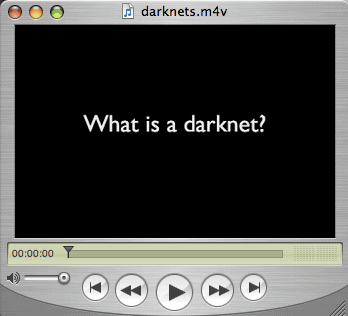The Dark Web... Part 3

In the first two parts of this article series I've written about how Iran is reportedly planning to build their own in-country Internet and asked if western countries want to constrain the Internet. In this part I want to look at how criminals and terrorists use the Internet, and how nations are now using it in war.
With criminal gangs the most common examples of misuse of the Internet are spam and malware. Criminal gangs have built botnets, robot networks of hundreds of thousands of infected PCs. They use these to send billions of spam emails, which offer a surprisingly high financial return or to launch denial of service or other attacks. Many of these attacks go unreported as companies are unwilling to publicise the fact that they are being blackmailed.
These criminal gangs are the easiest to foil and security companies and major tech firms including Microsoft have been extremely effective in the last couple of years at taking these gangs offline.
The problem here is anonymity. These criminals use the weaknesses of the Internet to hide their identities. Yesterday I talked about how a major British footballer was unmasked on Twitter despite having an injunction passed by the High Court forbidding the revelation of an affair. While it is now extremely difficult for celebrities, public figures and even the man on the street to maintain their anonymity online, criminals find it remarkably easy.
It's partly because of this that changes have been proposed to the infrastructure of the Internet, more on this in the final part of this article tomorrow.
Another important consideration however is terrorism. Terrorists commonly use a network system known as 'darknets'. These are networks where information is distributed across a network of nodes. Should one node be taken down the network remains and with each node only knowing the address of one other node, hiding information and identities becomes simple.
Access to a darknet is commonly through a program which makes the information you view impossible to intercept and your identity impossible to trace. These networks have been used for everything from secret scientific research to file-sharing, terrorism and they have been utilised by paedophile rings. If you want to find out more about darknets there is a fascinating article online here.
It's not only criminal gangs and terrorists who are exploiting the way the Internet works though, as now it's been demonstrated (beyond reasonable doubt anyway) that major world powers have got in on the act too. The attacks last year on some of Iran's infrastructure with power stations is a good, and currently the most high-profile, example. A virus was implanted into their systems that temporarily took some systems offline across the country. Security experts believed an attack of this scale, and a virus of this complexity could only have been developed with the resources of another nation state and, as such, this is now considered the first example of cyber-warfare.
We can be certain that activities like this are taking place all the time as the nature and structure of the Internet are exploited by those who wish to cause harm or loss to others. It is very clear then that policing the Internet is going to take much more than just security firms and specialist units within local police forces.
In the final part of this article series tomorrow I'll look to the future and ask if the Internet is to change, how should it change and what will the repercussions be for security, privacy and freedom?
Advertisement


















Hoi Mike, I have to concur foolhardily with Jack his comment/review . Personally i believe that Orson wells big brother model is what we need concerning the pedophilia (the root of all evil) network dissembling, with terrorism far behind on number two. And when an 100 % result can be reached i personally think that the (maybe great) side affects, are something we have to learn to leave with.
What I really want to read is a article with you thoughts how worldwide the root of the pedophilia part of internet can be yankt out completely for ever.
er…Martin…
when I click on the video (left side of article),
my browser jumps to page:
https://www.ghacks.net/2011/05/30/the-dark-web-part-3/jdlasica_darknet/
but no video is shown at all,
(not even an “empty video” outline in the page…)
Is that format of the video:
darknets.m4v <=== ???
causing this?
I am using:
XP-PRO & Firefox 3.6.17, latest version of Flash Player, here…
It is not my article, and judging from the article there does not seem to be a video linked or embedded in it.
Yup! Oversight on my part that. It’s not actually supposed to be a video. :/
Outstanding set of articles. I knew about this at a basic level, but this is the clearest outline I’ve read yet.
At one level makes us realise the full risks of the internet – as with every freedom ever won there comes risk and responsibility. Differences in attitude towards net freedom perhaps reflecting how much we’re each prepared to risk to preserve our freedoms. And if nothing else, moving us to continually question the motives of those promising to ‘protect’ us in return for the surrender of just a few of those freedoms.
“Those who would give up essential liberty…” etc…
The linked article really was interesting. I’ve enjoyed this series, thank you!